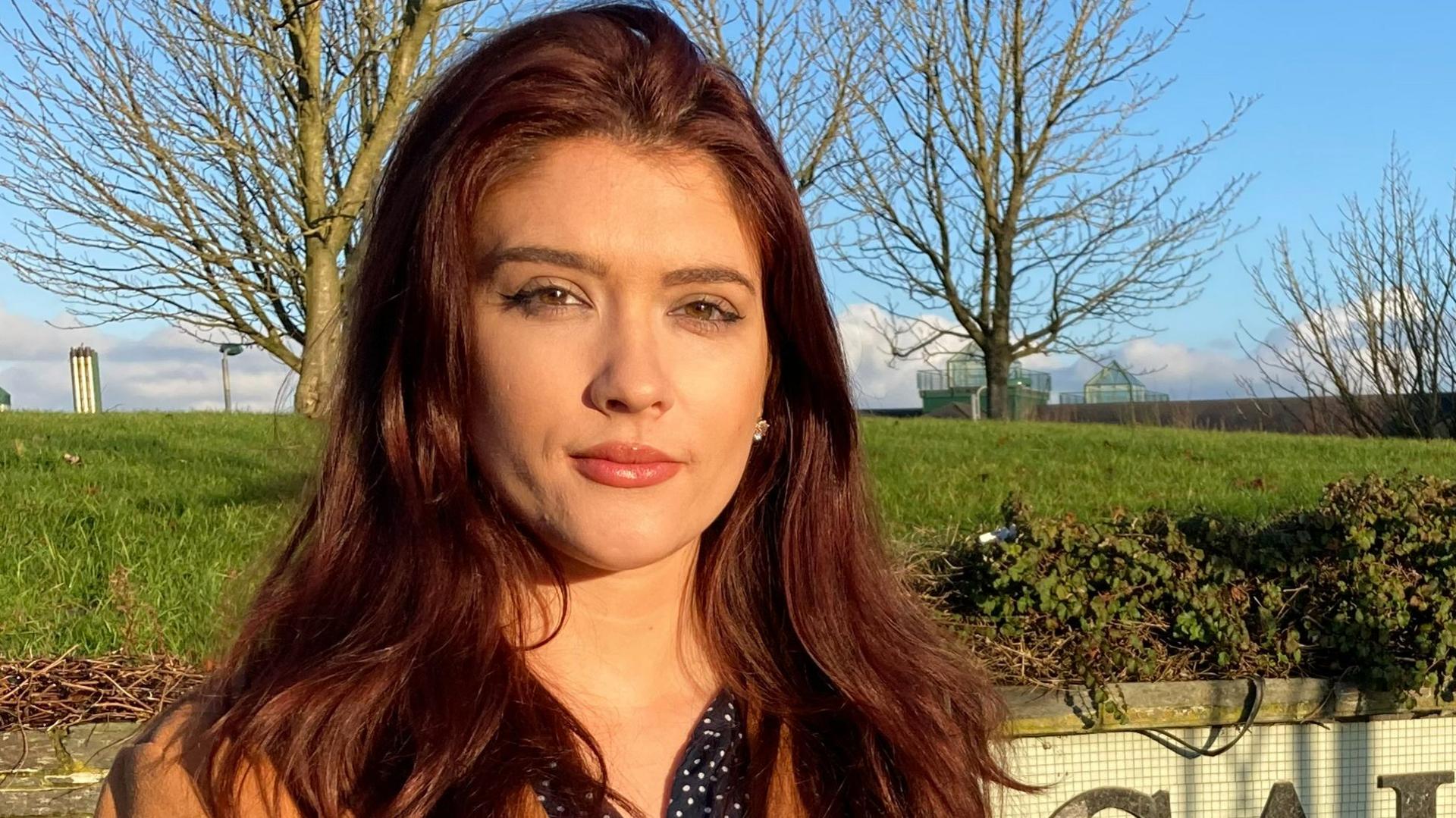SDLP leader condemns online abuse of Cara Hunter

Cara Hunter came third in East Londonderry constituency in last week's general election
- Published
The leader of the Social Democratic and Labour Party (SDLP) has condemned online abuse directed at the party’s East Londonderry election candidate Cara Hunter.
Colum Eastwood said Ms Hunter, who represents the area in the Northern Ireland Assembly, has been targeted since the general election.
She finished third in the constituency, behind Sinn Féin’s Kathleen McGurk who came within 179 votes of unseating the veteran Democratic Unionist Party (DUP) MP Gregory Campbell.
Mr Eastwood blamed some supporters of Sinn Féin for the abuse.
“The abuse that was levelled at Cara Hunter and others was over the fact that we ran a candidate in East Derry,” he told BBC Radio Foyle’s North West Today programme.
“To be clear there was no approach, no offer, no conversation from Sinn Féin to myself or anyone in the leadership of the SDLP about us not running in East Derry,” he said.
In a statement to BBC News NI, Sinn Féin’s candidate Kathleen McGurk said there was “no place for personal abuse against political representatives or anyone in our society".
Mr Eastwood said Ms Hunter was “fine” and “very resilient”.
However, he said there “is a nastiness sometimes in our politics, particularly here, particularly coming from one source”.

During the election campaign, police said safety information was available for candidates
Ms Hunter, a former deputy mayor of Derry, has previously spoken out about abuse she has received online.
In 2020, she said he had received sexually violent and threatening abuse online and by phone.
She said she had to have her contact details removed from Derry City and Strabane District Council's website due to the abuse and had taken advice from police.
Last month, the head of Northern Ireland's electoral commission warned it would be "damaging to democracy" if women don't feel safe to campaign or take part in elections.
Cahir Hughes said that "we'd be a poorer society if women did not feel safe" to run for office.
A report from the commission, external looking at the May 2023 local elections in Northern Ireland highlighted that half of the 807 candidates reported experiencing threats, abuse and/or intimidation.
It also found women candidates in Northern Ireland were more likely than male candidates to have experienced harassment.